January 24, 2013
by Leslie Stone
China went from being a closed system with open minds to an open system with closed minds
Originally published December 3, 2012 (Quartz.com)
http://jamesmcgregor-inc.com/2012/12/05/china-went-from-being-a-closed-system-with-open-minds-to-an-open-system-with-closed-minds/

Communist Party Chairman Xi Jinping must learn to appreciate outsiders’ contributions to China too. AP Photo / Yves Logghe
When I first visited China in 1985, the country was a blur of bicycles, blue Mao suits and impatient curiosity. As my sister Lisa and I backpacked across the country, we were besieged by people of all ages who wanted to practice English and quiz us about the world beyond their borders.
China was a closed system with rapidly opening minds. Today, China is a much more open system with some purposely closing minds.
China has advanced at a dizzying pace in the 23 years I’ve lived in Beijing. Foreign investment and its workshop-of-the-world export prowess have created incredible wealth and made China the world’s second largest economy.
According to a thorough new study by Associated Press writers Joe McDonald and Youkyung Lee, China is fast replacing the US as the top trading partner for countries large and small:
As recently as 2006, the U.S. was the larger trading partner for 127 countries, versus just 70 for China. By last year the two had clearly traded places: 124 countries for China, 76 for the U.S. In the most abrupt global shift of its kind since World War II, the trend is changing the way people live and do business from Africa to Arizona, as farmers plant more soybeans to sell to China and students sign up to learn Mandarin. The findings show how fast China has ascended to challenge America’s century-old status as the globe’s dominant trader, a change that is gradually translating into political influence. They highlight how pervasive China’s impact has been, spreading from neighboring Asia to Africa and now emerging in Latin America, the traditional U.S. backyard.
So how is China preparing it citizens to become global leaders? By preserving ancient habits and purposely stifling knowledge while instructing its citizens to become the world’s most creative thinkers. The Party is pushing its behemoth state-owned enterprises to “go global” and beat the leading multinationals as it exhorts scientists and entrepreneurs to transform China into a technology and innovation powerhouse.
At the same time, the ancient tradition of Yumin Zhengce (愚民政策, keeping the masses ignorant so they will follow the leaders) is still at the core of Chinese education and propaganda. In the days of Qin Shihuang, the first emperor, the idea was that an ignorant population would focus on agriculture, thereby providing the solid economic base needed to defend against invaders and conquer enemies. As Shang Yang (390-338 BC), a prominent scholar and statesman during that period put it: 民愚则易治也 (minyuzeyi zhidian, an ignorant populace is easy to rule).
The Chinese people today are anything but easy to rule. They are informed and often indignant about what is happening in China thanks to the internet and social media, despite pervasive and sophisticated censorship. But they are much less informed about or focused on international affairs. To distract from out-of-control corruption, gaping income disparities and a litany of inequities resulting from the lack of rule of law and breakneck growth, the Party blames most of the country’s problems on “foreign forces” that are determined to quash China’s rightful rise. Inflation? US Fed Chairman Ben Bernanke’s quantitative easing. Resource and territory disputes with neighbors? American manipulation and encirclement.
The Party refined this victimization narrative for the October 2009 60th birthday of the People’s Republic. The vehicle was the “Road of Rejuvenation,” a Broadway-style show with some 3,200 performers singing and dancing their way through 170 years of Chinese history, from the mid-1800s Opium Wars to the 2008 Beijing Olympics. Rag-clad peasants staggered under crates overflowing with gold bars destined for foreign ships. Electronic waterfalls of blood dripped down the theatre walls as hundreds of Chinese corpses stacked like timber came alive to rise up and vanquish Japanese invaders.
The storyline is simple. China was a glorious place until the foreigners came to exploit and humiliate. And China is regaining past greatness because the Party protects the country from foreigners who remain determined to keep China poor and dependent.
On Nov. 29, newly installed Communist Party Chairman Xi Jinping brought the six members of his top leadership team (his colleagues on the Politburo Standing Committee) to visit the “Road of Rejuvenation” exhibit at the National Museum bordering Tiananmen Square. After “carefully examining the exhibits,” according to Xinhua, Xi said that “we have to continue taking this road, unswervingly.” But he stressed the positive instead of stewing in victimization: ”I believe that by the time when the Communist Party of China marks its 100th founding anniversary, the goal to complete the building of a moderately prosperous society in all respects will be inevitably achieved.”
It is gratifying to see Xi begin his decade-long term as China’s top ruler trying to stress a positive vision. For Chinese people to be comfortable with the country’s role as a global leader, Xi will have to sideline the anti-foreign rhetoric that is the core of today’s foreign policy propaganda.
It is a pity that his Party’s censorship strictures will make it difficult for Xi to get his hands on the new book “Restless Empire” by historian Odd Arne Westad.
In a Washington Post review this weekend, veteran China watcher John Pomfret says the book “tells the story of the foreigners who helped China become what it is today, from China’s first interactions with the West to the current era. In doing so, Westad upends, but ever so politely, a slew of misconceptions about China that have been concocted by his academic predecessors both in the West and in Asia.”
…despite claims by communist historians, foreigners were key to China’s modernization. British, Americans, Japanese, Germans and Russians played enormously important roles as advisers, models, teachers, guides and enlighteners of the Chinese. While Westad does not underplay the depredations meted out by the imperialist powers, he also tells the other side of that story — that American missionaries brought education, science and modern medicine to China, that the British imported modern administrative techniques, that the Germans taught the Chinese a significant amount about warfare. Heck, the French even created China’s postal service.
Pomfret also directly contrasts the book with his own visit to the “Road of Rejuvenation” exhibit.
(Westad’s) book will not be published in China because a mainland publisher demanded too many cuts. And that’s important, because how China frames its past weighs on how it will face our common future. I recently visited the permanent exhibition on China’s rise at the newly renovated National Museum of China on Tiananmen Square: “The Road of Rejuvenation.” Foreign contributions — other than those from Karl Marx and Vladimir Lenin — are nowhere to be found. Panel by panel, a story emerges of murder, rape and pillage by one Western army after another in a totally distorted netherworld of humiliation and pain. The operative sentiment I felt on leaving the exhibition was: “Earth to the Chinese Communist Party, grow up.” Reading Westad would be a good place to start.
I just downloaded the book and look forward to reading it. I hope Xi also finds his way to a copy.

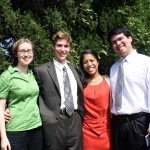
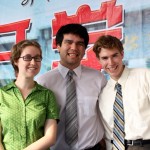
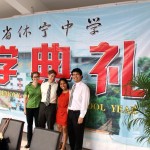
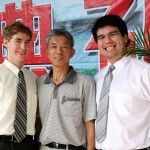
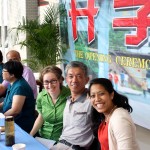
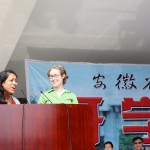
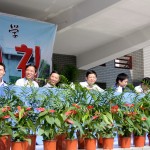
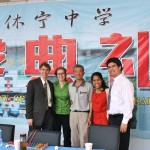
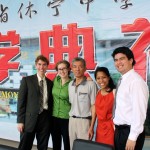





Recent Comments